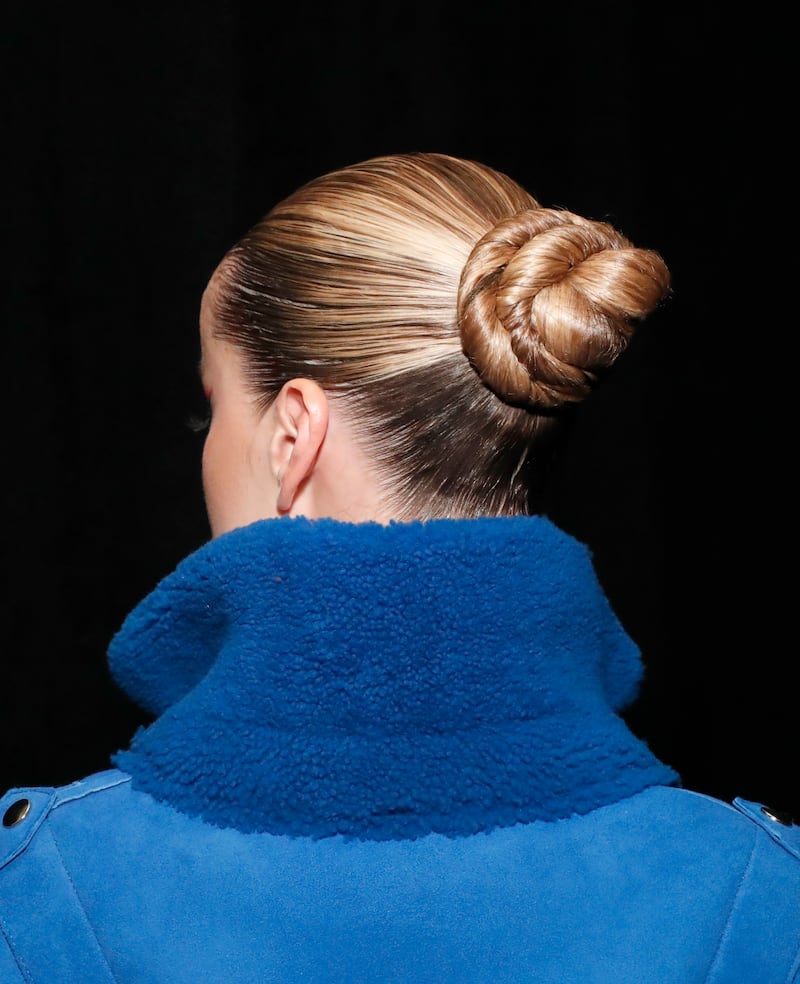Exosomes are suddenly everywhere. Difficult to pronounce yet impressive in its efficacy, this buzzy ingredient is popping up all over the beauty aisle. Exosome-containing skincare products often promise a boost in collagen production and skin regeneration—the process of damaged tissue being replaced by new, healthy tissue. In hair-thinning remedies, they can supposedly kick hair follicles into the active-growth phase.
For decades, Retin-A (tretinoin), Rogaine (minoxidil), and Botox (botulinum toxin) were among the only treatments FDA-approved to treat signs of aging and hair loss—and for most people, they work. In the last few years, though, innovations in the worlds of over-the-counter skincare, haircare, and regenerative cosmetic procedures have seen an inundation of promising ingredients and patented molecules that may also deliver real results as an alternative or complement to these tried-and-true products.
Exosomes are one such ingredient, and now that they’ve hit the scene, it seems every skinfluencer and media-savvy dermatologist is touting their rejuvenating power. But can exosomes live up to what they promise?
What are exosomes, and why are all my skincare-obsessed friends talking about them?
“Exosomes are nano-sized vesicles released by cells to communicate with other cells,” explained Hadley King, a board-certified dermatologist based in New York City. “They contain growth factors, other proteins and peptides, genetic material and lipids.”
According to Joshua Korman, a board-certified plastic surgeon and the founder of Korman Plastic Surgery in Northern California, exosomes were actually first discovered in the 1980s. Early researchers brushed them off as cellular waste, but more recent studies have uncovered their signaling powers. “Inside these little bubbles are a lot of truly remarkable biological materials,” Dr. Korman told the Daily Beast. “They have clever membranes that allow them to easily slip into and out of cells, making them highly effective at communication.”
So, exosomes basically boss cells around, telling them to behave well. Though this certainly sounds cool, what does it all mean?
How are exosomes used in health and beauty products?
Like most cosmetics, over-the-counter skincare products containing exosomes aren’t regulated by the Food and Drug Administration (FDA). “As a result, product quality can vary,” cautioned Brendan Camp, a board-certified dermatologist at MDCS Dermatology in New York City.
Exosomes can come from human, plant, bacterial, or animal sources or be made in a lab. Dr. Camp, Dr. King, and Dr. Korman all flagged human-derived exosomes—which usually come from donated umbilical cord blood, fat tissue, blood platelets, or placenta tissue—as the most effective, and the science backs this up. However, Dr. King highlighted that human-derived exosomes can have stability and contamination issues, not to mention regulatory roadblocks to sourcing them.

“Plant and lab-based exosomes may be more palatable for some, but research is more limited on the efficacy of these products,” said Dr. Camp.
If you’re buying skincare or scalp products, what should you look for on an ingredients list? The active ingredient on a product label might contain the actual word “exosomes,” like human adipose stromal cell exosomes, plant culture-derived exosomes, bacterial-derived exosomes, milk exosomes, or bovine colostrum exosomes. Or they may be referred to as “vesicles” or “media,” such as bacterial-derived vesicles or human adipose-derived stem cell conditioned media extract.
Exosomes in skincare
“Exosomes are used in skincare because of their anti-inflammatory and regenerative properties,” said Dr. Camp. Products containing exosomes are often meant to leverage the body’s natural healing ability and collagen-regeneration process, added Dr. Korman. “They offer a holistic, natural solution that not only enhances people’s appearance but also supports long-term skin health and vitality.”
This almost seems too good to be true, but the science appears pretty solid. According to Dr. King, you can get results from applying exosomes topically with over-the-counter products, even if your skin is intact—that is, not currently healing from anything. She points to Elevai Enfinity as a “great topical option,” which promises to boost elasticity and soften fine lines in as little as four weeks, with even more dramatic results after 12 weeks.
Many exosome skincare products are steeply priced, but not all. Peach & Lily MiniProtein Ampoule is more accessible, for example. “More will certainly hit the market as the popularity increases and technology continues to improve,” Dr. King said.
Exosomes in haircare
As for scalp use, Dr. Camp says exosomes might encourage hair growth by calming inflammation and encouraging the development of hair follicle cells.
Dr. Korman explains that exosomes can use their cell-communication power to tell hair follicles to enter into the active growth (anagen) phase of the natural growth cycle and stay there for longer before moving to the resting (telogen) and shedding (exogen) phases. This allows for thicker hair growth.

In terms of over-the-counter products you can add to your routine, look for a scalp serum or spray containing exosomes, such as Exoceuticals Exo Fortify.
Exosomes in clinical and aesthetic treatments
When used in clinical settings, Dr. King explained that exosomes are typically applied after procedures like laser resurfacing or microneedling. These treatments create “tiny channels in the skin,” allowing exosomes to be absorbed better while harnessing their wound-healing and anti-inflammatory effects. In other words, by incorporating them into a cosmetic procedure, you might get better results—and recover faster.
Microneedling can also be done on the scalp to promote hair growth, Dr. King added. “Recent studies have shown that when exosomes from dermal papillae cells of hair follicles were injected into hair follicles, they were able to increase hair growth.”
The FDA hasn’t approved exosomes for topical or injectable use. However, blood-forming stem cells from umbilical cord blood, which secrete exosomes, are FDA-approved to treat blood disorders but not for any cosmetic uses. Exosomes are biologics (meaning they’re made from living organisms), which calls for more extensive clinical testing before the FDA issues an approval license.
As in any case, you’re wise to proceed with caution and only get cosmetic treatments from a licensed provider. This is especially crucial if exosomes are used in an off-label capacity—meaning in a way that’s not FDA-approved, such as being injected into the skin.
That said, exosomes undoubtedly show promise as treatment for photoaging (sun damage), age-related loss of skin elasticity, and hair loss, as well as an anti-inflammatory and wound-healing therapy. If you’re into beauty innovation and exploring “the next big thing” in aesthetic treatments, they might be worth trying.
The post Why Are Exosomes Suddenly in All Your Skin and Hair Serums? appeared first on The Daily Beast.




